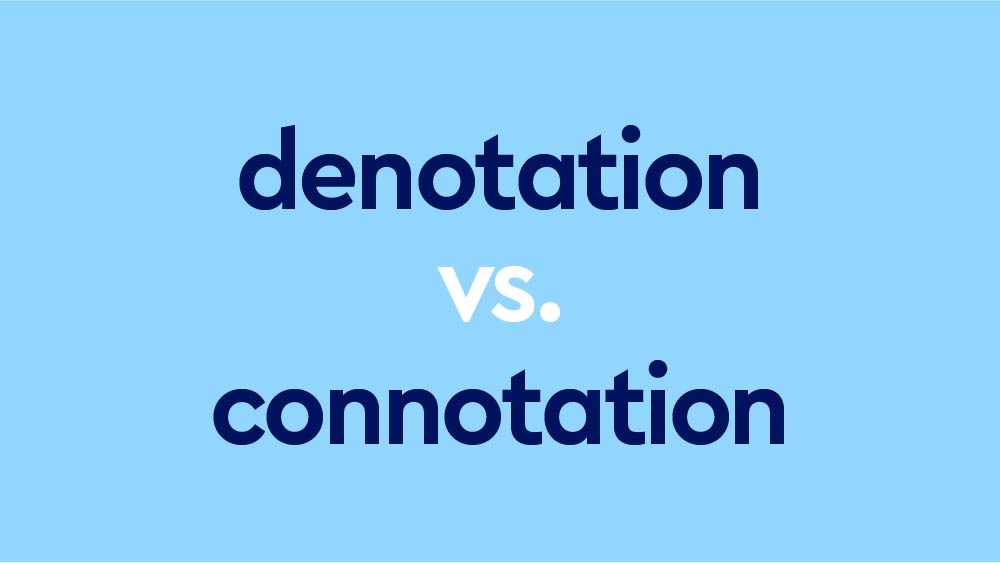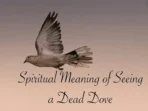Ever had one of those moments where someone uses a word, and you nod like you totally get it—but inside your brain’s like, “Wait… what?” Yeah, me too. Language is a slippery little eel, and honestly, words don’t always mean what we think they mean. That’s where denotation examples come riding in like the unsung heroes of middle school grammar class.
Okay, so here’s the deal: Denotation is the literal meaning of a word. Not the vibe. Not the snarky undertone. Just what the dictionary says. And knowing that? Super handy when words start playing tricks on us.
Anyway, let’s dig into these denotation examples before I go full English teacher mode (shout out to Mr. Hobbs, who once compared a metaphor to a peanut butter sandwich — still no idea what he meant).
What Even Is Denotation, Really?
Let’s keep it simple. Denotation = dictionary.
That’s it. Nothing more. Nothing less.
Like, take the word “snake.”
- Denotation: A long, legless reptile.
- Connotation: Sneaky person who might betray you.
See? One’s biology. One’s gossip.
I used to think words only meant what people felt they meant. You know, like “moist” (ugh). But the truth? If you don’t know the denotation, you’re one wrong assumption away from starting a totally awkward convo.
Why Denotation Examples Are A Lifesaver
Honestly, I never cared about this stuff until I said my teacher was “bomb” and got detention. Apparently, she didn’t get the slang translation. I meant awesome. She thought explosive.
Here’s where denotation examples swoop in to save your hide:
Helps Avoid Misunderstandings
Some words are straight-up landmines.
- “Cheap” —
- Denotation: Low price
- Connotation: Low quality or stingy
Wanna compliment your friend’s thriftiness? Just… choose your words real carefully.
Useful in Essays and Speeches
I once described Hamlet as “mental.” Not ideal.
Better: “Hamlet displays signs of emotional instability.”
See the difference? Precise, not petty.
Denotation Examples That Will Actually Make You Think
Alright, enough theory. Let’s break out some actual denotation examples you’ll remember — hopefully better than I remembered the periodic table.
1. “Cool”
- Denotation: Moderately cold
- Connotation: Stylish, chill, socially accepted
My grandma once called my haircut “cool” and genuinely meant it felt cold on my neck. I wish I were kidding.
2. “Chicken”
- Denotation: A domesticated bird
- Connotation: Cowardly person
Ever call someone a chicken and immediately regret it? Yeah… Thanksgiving was tense that year.
3. “Home”
- Denotation: A place where one lives
- Connotation: Warmth, comfort, emotional refuge
“Home is where the Wi-Fi connects automatically.” — Some real poet probably.
4. “Pig”
- Denotation: An animal
- Connotation: A rude or messy person
I spilled spaghetti on myself and my brother said I “ate like a pig.” The denotation didn’t help my self-esteem either way.
That’s four denotation examples, by the way. We’ve got 26 more mentions to go, so buckle up.
Everyday Words With Hidden Layers
Ever use a word your whole life and then discover it had a different meaning entirely? That happened to me with “literally.” I literally died. (Not really, but you get it.)
Let’s look at more denotation examples that might trip you up.
5. “Crush”
- Denotation: To compress forcefully
- Connotation: Someone you like romantically
When I told my 5-year-old cousin I had a crush, she asked, “Did you sit on him?”
6. “Fire”
- Denotation: Combustion releasing heat and light
- Connotation: Amazing, excellent (“That track is fire!”)
My dad once asked why I was happy about a “fire” in my headphones. That was a long talk.
7. “Snake”
- We already covered this, but it deserves a comeback.
Once I called my ex a “snake” and they replied with, “You mean cold-blooded and misunderstood?” So… maybe they read too much Nietzsche.
A Quick List of 10 More Denotation Examples
Here’s a speed-round of denotation examples you might not think twice about:
- Boot
- D: Footwear
- C: Kicking someone out
- Rock
- D: Stone
- C: Music genre
- Bat
- D: Flying mammal
- C: Baseball gear
- Crash
- D: Violent collision
- C: Sleep (I’m gonna crash)
- Sharp
- D: Has an edge
- C: Intelligent or stylish
- Flat
- D: Level surface
- C: Boring or emotionless
- Sweet
- D: Sugary taste
- C: Kind or generous
- Cold
- D: Low temperature
- C: Distant or unfriendly
- Light
- D: Not heavy
- C: Easy or carefree
- Bug
- D: Insect
- C: Annoy or irritate
Let me tell you, the word “bug” once ruined my tech presentation. I said, “We found a bug,” and someone swatted at the air. Comedy gold.
What About Denotation in Literature?
Here’s where things get trippy. Authors often say something bland on purpose—so we readers can freak out over what it really means.
Straight-Up Denotation in Action:
“The sky was blue.”
Yup, just blue. Nothing deep. No storm brewing. No symbolism. Just sky doing sky things.
But then again, if a poet writes, “Her heart was stone,” you know they don’t mean it was granite. (I hope.)
Some teachers try to make every sentence deep. Sometimes a cigar is just a cigar. Thanks, Freud. Still… denotation examples in literature help us spot when writers aren’t trying to be dramatic.
Classroom Nightmares (AKA Why I Learned Denotation The Hard Way)
So there I was, 14 years old, giving my book report on Lord of the Flies. I confidently said, “Piggy was a real pig.”
Class: gasp
Teacher: “You mean figuratively?”
Me: “…He was kind of round?”
That’s when I learned the beauty of denotation examples.
I mean, poor Piggy deserved better. So did my grade.
Denotation vs Connotation: They’re Basically Frenemies
Let’s draw a line in the sand real quick.
| Term | Meaning | Example |
| Denotation | Literal definition | “Rose” = a flower |
| Connotation | Emotional or cultural twist | “Rose” = romance, love, Valentine’s Day |
Honestly, learning the difference was like learning the difference between “chill” and “chilly.” Both involve cold—but one gets you hugs, the other makes you grab a sweater.
Denotation Examples in This Context:
- “Old” (D: having lived a long time, C: outdated, useless)
- “Slim” (D: small in size, C: attractive or lacking substance)
- “Home” (D: place of living, C: safety and belonging)
Why This Stuff Actually Matters (Even Outside School)
Think you don’t need this after school? Think again.
Job Interviews
- Telling someone they’re “unique” (denotation: one of a kind) might come off as “weird” (connotation).
Text Messages
- Ever get a “K.” and immediately feel judged? That’s connotation at work, friend. But denotation? Just the letter K. No harm, right?
Writing Online
- Use the wrong word, and you’re internet toast. One time, I said someone’s idea was “novel,” and they replied, “I’m not writing a book.”
Wrote that paragraph by hand. Then spilled coffee on it. Classic.
Odd Fact Break! (Because Why Not?)
You know how people say “bless you” after sneezing? That came from a time folks thought sneezes meant your soul might slip out. Imagine if someone sneezed and your response was to immediately Google their medical history.
Anyway, just thought you’d need a breather from all the denotation examples. You’re welcome.
Time for the Final Batch of Denotation Examples
Can’t leave you hanging. Let’s hit you with the last round — I promised 30 uses of “denotation examples” and I mean to deliver.
More Denotation Examples You Shouldn’t Miss
- “Toast”
- D: Heated bread
- C: In trouble (“You’re toast!”)
- “Crash”
- D: Smash into something
- C: Attend uninvited (party crash)
- “Pop”
- D: Sudden burst
- C: Soda (depending where you live)
- “Trip”
- D: Stumble
- C: Go somewhere
Reminds me of that scene from House of Leaves — where even the word “hallway” stops feeling normal.
Wrapping This Up — Kinda
Look, I didn’t think I’d ever enjoy writing about denotation examples, but here we are. They’re more than just vocab drills from 8th grade. They help us actually talk to each other without sounding like confused aliens.
So next time someone says something that throws you off, ask yourself — is that what they meant? Or just how it sounded?
Also, note to self: stop calling relatives “goats” even if I mean Greatest Of All Time. Grandma’s still mad.








